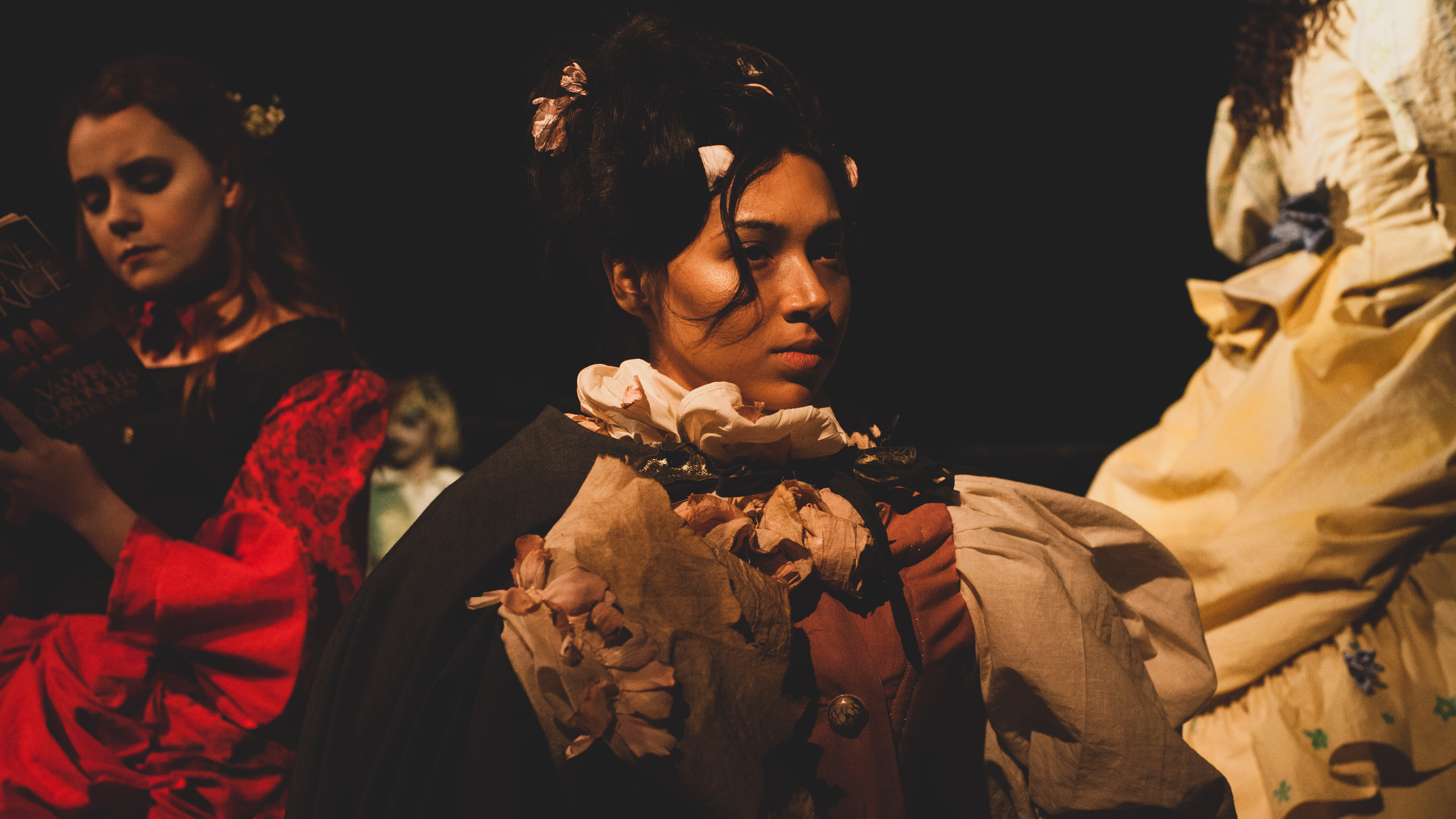Course units
Year 1
Unit 1: Introduction to Costume for Theatre and Screen
This unit is an introduction to your course, the College and the University.
Unit 2: Designing and making
This unit explores the practical and theoretical methods for contemporary and sustainable costume design. Through a series of projects, you’ll learn different pattern-cutting approaches and experiment with dye and print methods. Lectures on costume theory that will introduce a contextual understanding of dress and its impact on society.
Unit 3: Exploring ideas
This unit will develop your understanding of key technical processes, concepts and critical approaches to costume design. Projects will support a clear design or interpretation focus to allow you to begin to explore your specialist choice. Verbal and written presentations will help you clearly articulate your design ideas and processes.
Unit 4: Who are you? Establishing practice
In this unit you will work collaboratively in groups to develop, design and produce a fully realised wearable costume. You’ll work with a set text and broadly explore time, place and context in relation to your costume design. Tutorials and technical workshops will support your practical learning. You’ll showcase your final outcome during a performance for an invited audience.
Year 2
Unit 5: Practice as laboratory
This unit will build upon the knowledge and skills that you established in your first year. You’ll work on a challenging project within your chosen costume specialism, experimenting with advanced skills and working methods. You’ll also continue to develop your reflective journal. This will help you establish your professional practice.
Unit 6: Collaborative and collective practices
You will be introduced to different ways in which collaborative working can help you to focus and enhance your own creative strengths. You’ll have the chance to work with fellow students and creative communities.
Unit 7: Where in the world? Part 1
In this unit, you’ll focus on a studio project specific to your specialism. You’ll research broader concepts and themes such body, gender, movement and audience. Using this knowledge, you’ll design and construct your first fully wearable costume. You’ll also apply for work placements that will be undertaken in unit 8.
Unit 8: Where in the world? Part 2
This unit has 2 components: a self-directed project and a work placement. The project gives you the opportunity to select what and how you want to learn. The placement will give you insight into the diverse career opportunities available in costume.
Year 3
Unit 9: Finding your voice: portfolio design, crafting research skills and career planning
This unit serves as the beginning of your final year project. You’ll develop a reflective research portfolio to articulate your research ideas. You’ll also build a professional portfolio that showcases your personal aesthetic. The final element is a creative research project which can be written, filmed or presented.
Unit 10: Show your work: independent practice
This final unit enables you bring together all the ideas and learning from the course. You’ll continue your self-directed programme of practice and related research. You’ll also prepare your portfolio to help you enter the costume industry. To finish your course, you’ll present your best work at the College show.
Optional Diploma between Years 2 and 3
Between Years 2 and 3 of the course, you’ll also have the opportunity to undertake one of the following additional UAL qualifications:
Diploma in Professional Studies (DPS)
This optional diploma can be taken between years 2 and 3. With support from your tutors, you’ll undertake an industry placement for a minimum of 100 days/20 weeks. As well as developing industry skills, you’ll gain an additional qualification upon successful completion.
Diploma in Creative Computing
Between years 2 and 3, you can undertake the year-long Diploma in Creative Computing. This will develop your skills in creative computing alongside your degree. After successfully completing the diploma and your undergraduate course, you’ll graduate with an enhanced degree: BA (Hons) Costume for Theatre and Screen (with Creative Computing).

